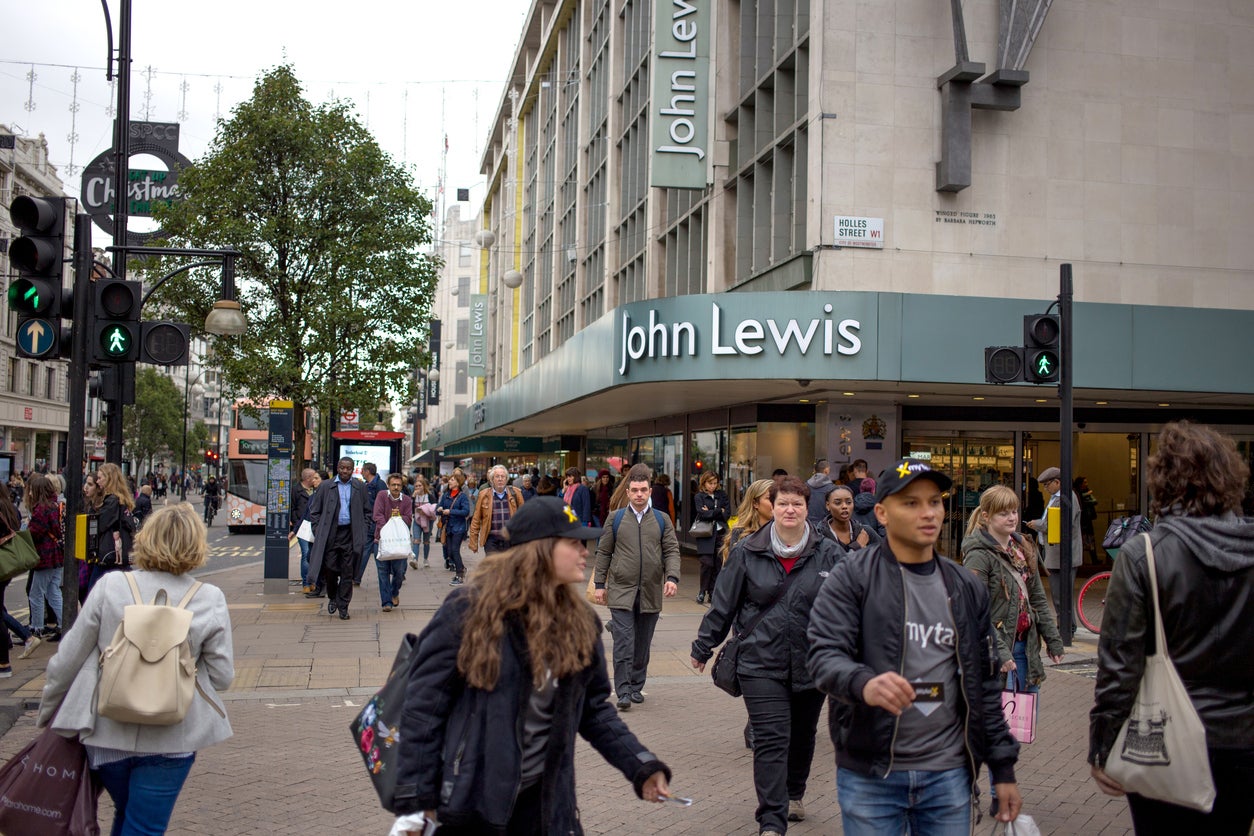Why we should worry for the future of John Lewis
The firm is doing all the right things but, amid warnings about no-deal Brexit, its decline continues, writes Jim Moore


The John Lewis Partnership has mostly been doing the right things and as such critics of Britain’s largest employee owned business are hard to find.
There was more evidence of that to be found in some otherwise gloomy looking results produced by an organisation that puts most of its rival retailers to shame.
Faced with an extraordinarily difficult backdrop, and uncertainties bordering on the frightening, the partnership has reacted with prudence.
It’s been hoarding cash and managed to reduce its debt pile by £469m to £2.4bn over the six months to 27 July.
The bonuses paid to employee partners have been sharply reduced. That could be likened to a dividend cut at a shareholder owned plc. But grumbling employees are easier to deal with than the massed ranks of the City of London if you’re straight with them, as this business tries to be. It helps that bosses feel the pain along with staff. They don’t get millions of pounds worth of free shares when the business is stumbling.
There was more pain courtesy of the closure of the final salary pension scheme. But the funding hole was down during the first half and the measure has further served to enhance the financial flexibility of the business.
What hasn’t stopped is the partnership’s investment in its people through training and the like. This is also good business and financially prudent. Recruitment is expensive. High staff turnover impedes productivity. One way of keeping it to a minimum is by investing them. Grocery business Waitrose more or less held its own too.
Here’s the rub: despite all that, the results continue to decline. Take out one off gains and the Partnership recorded a £25.9m loss in the first part of the year compared to an £800,000 profit last time.
“We’ve been in business for more than 100 years (155 in fact), and we intend to be in business for another 100”, I was told. We’re making sure the business is fit to cope with a retail market that is in the midst of a reset. When things pick up, we’ll be ready to reap the benefits.
Trouble is, what if they don’t?
“Should the UK leave the EU without a deal, we expect the effect to be significant and it will not be possible to mitigate that impact,” said Sir Charlie Mayfield, who chairs the business. If you don’t believe the government’s Operation Yellowhammer documents, believe retailers that know what they’re talking about (Co-op has said much the same thing). It will be a car crash.
There is supposed to be a law to prevent that, but the deceitful Johnson government has been equivocal about complying with it and the EU may still say no to an extension.
Even if it doesn’t and shoppers start feeling confident enough to buy big ticket items again (the partnership says they too have been hoarding cash leading to a decline in sales at its department stores), the economic backdrop is set to remain uncomfortable at best. The shake up in retail, meanwhile, shows no sign of settling down.
It bears repeating that John Lewis, despite its difficulties, is in a position most UK retailers would envy. Because Lewis makes most of its money in the second half of the year, it should still turn an operating profit when the dust has settled.
There should be scope to further reduce that debt pile, and add to the cash reserves. This car mightn’t be in the fast lane but it’s still on the road, still passing by the broken down wrecks of its rivals.
That’s a good thing too. The presence on high streets of such a large, progressive-minded business that is owned by its staff and invests in them, is very welcome in modern Britain.
But new boss Sharon White faces a baptism of fire. That road is full of nasty looking potholes. Partners bonuses, at 3 per cent of salary, are at their lowest level for decades, and it doesn’t look as if they’ll pick up any time soon. You do now have to worry. Just a bit.
Join our commenting forum
Join thought-provoking conversations, follow other Independent readers and see their replies
Comments